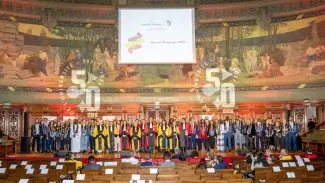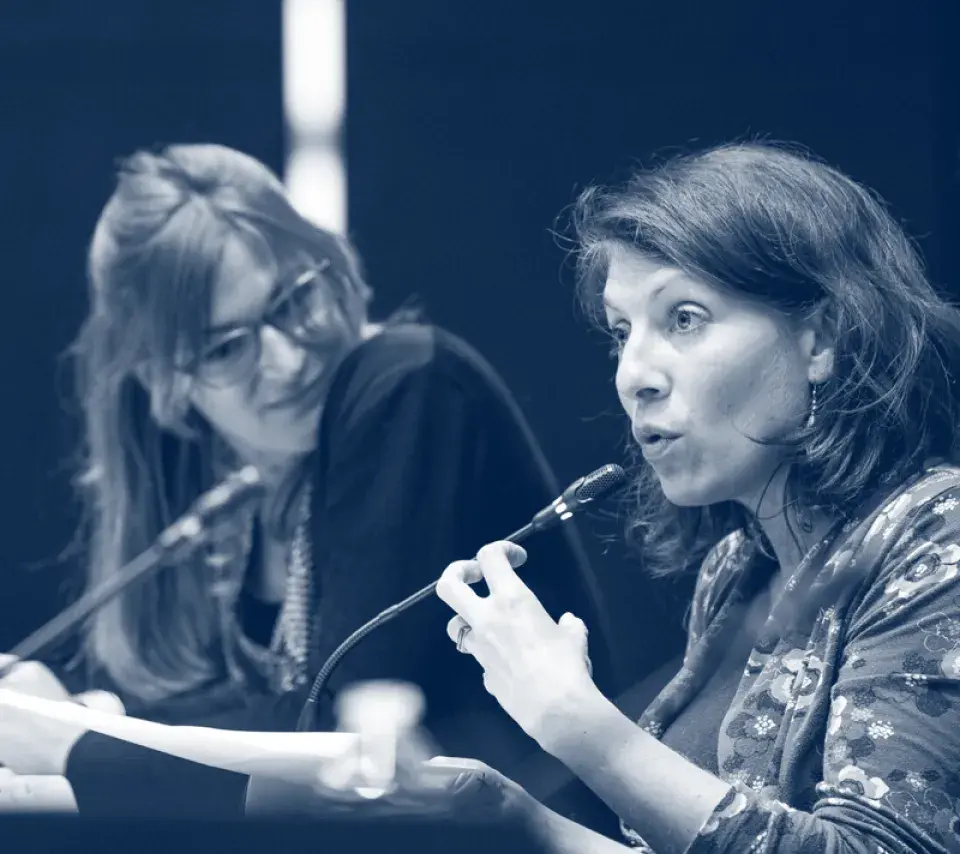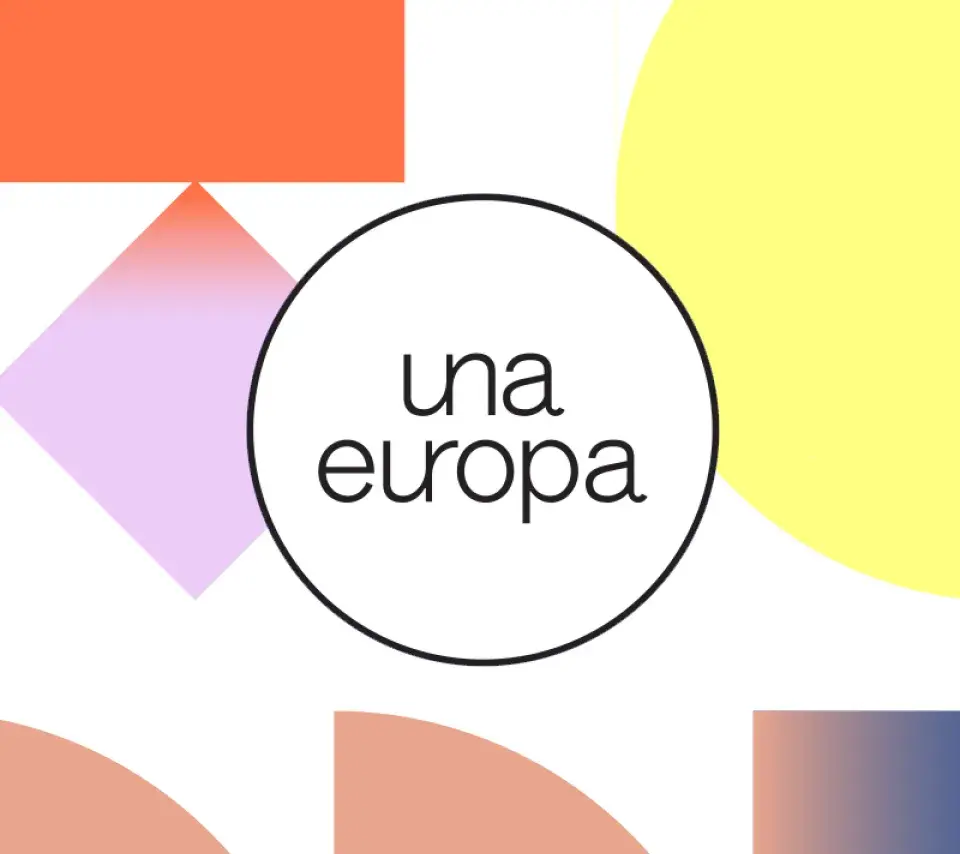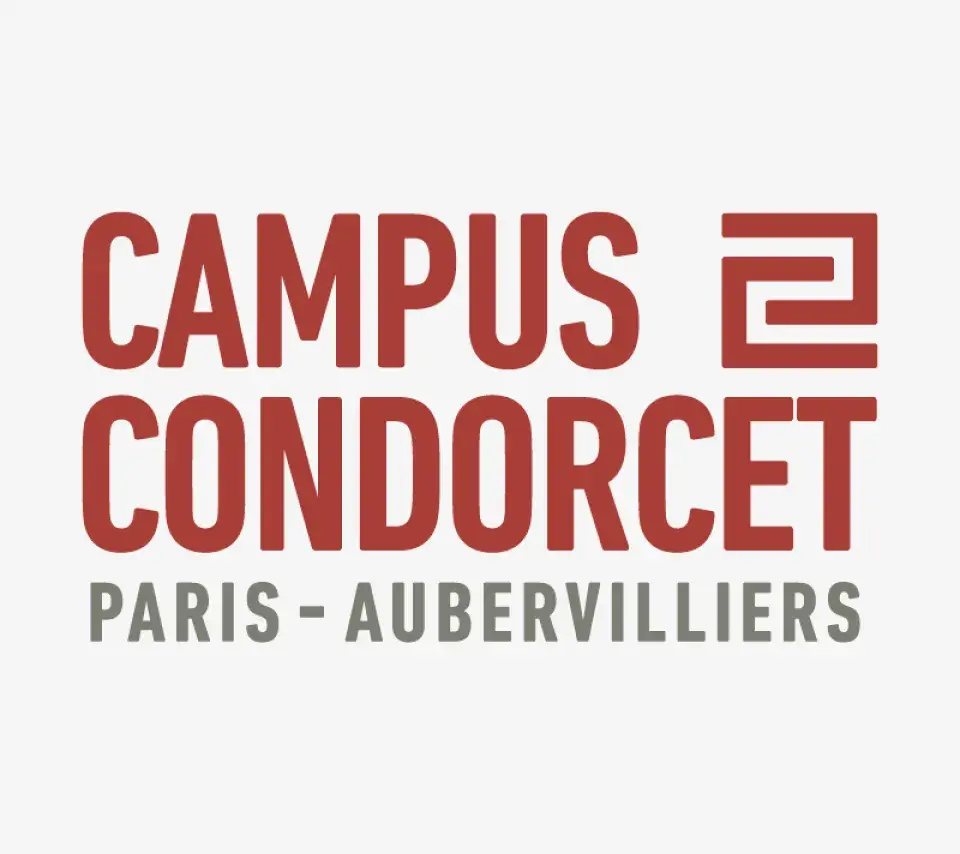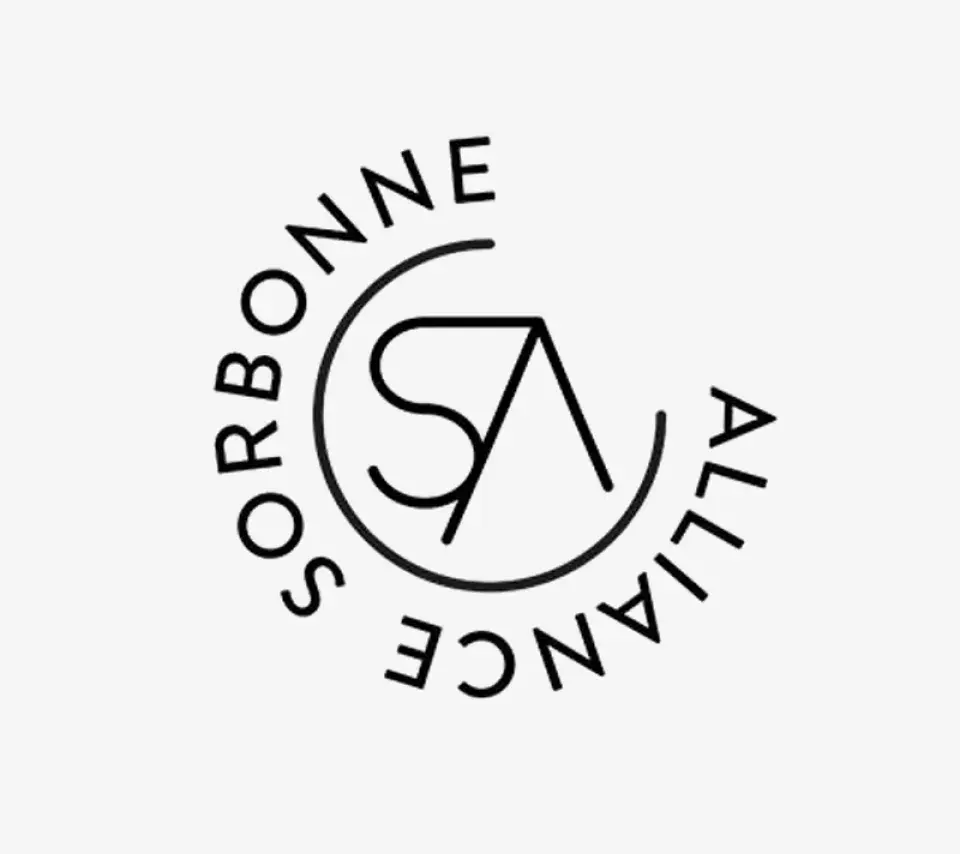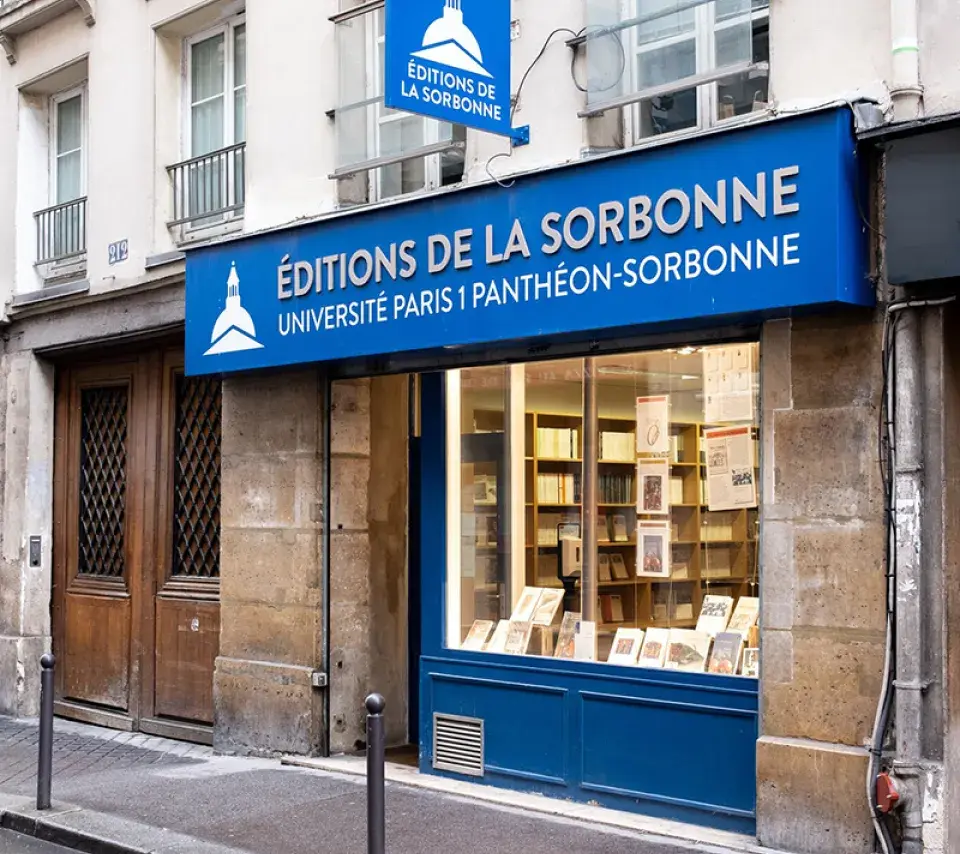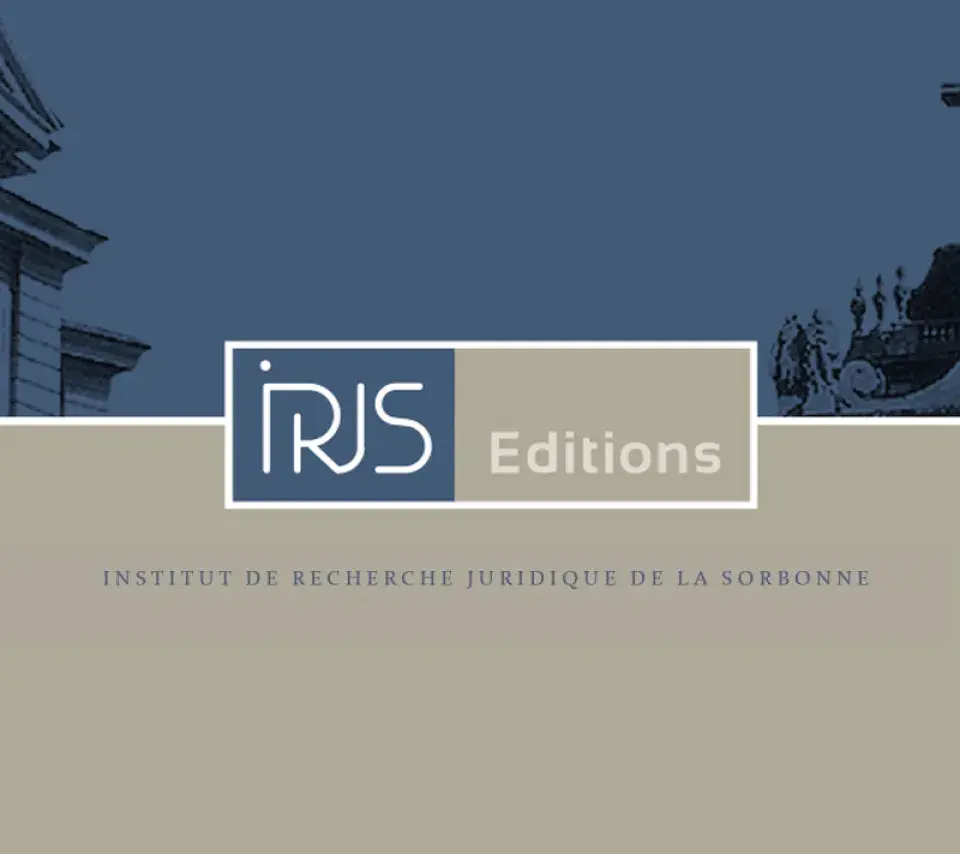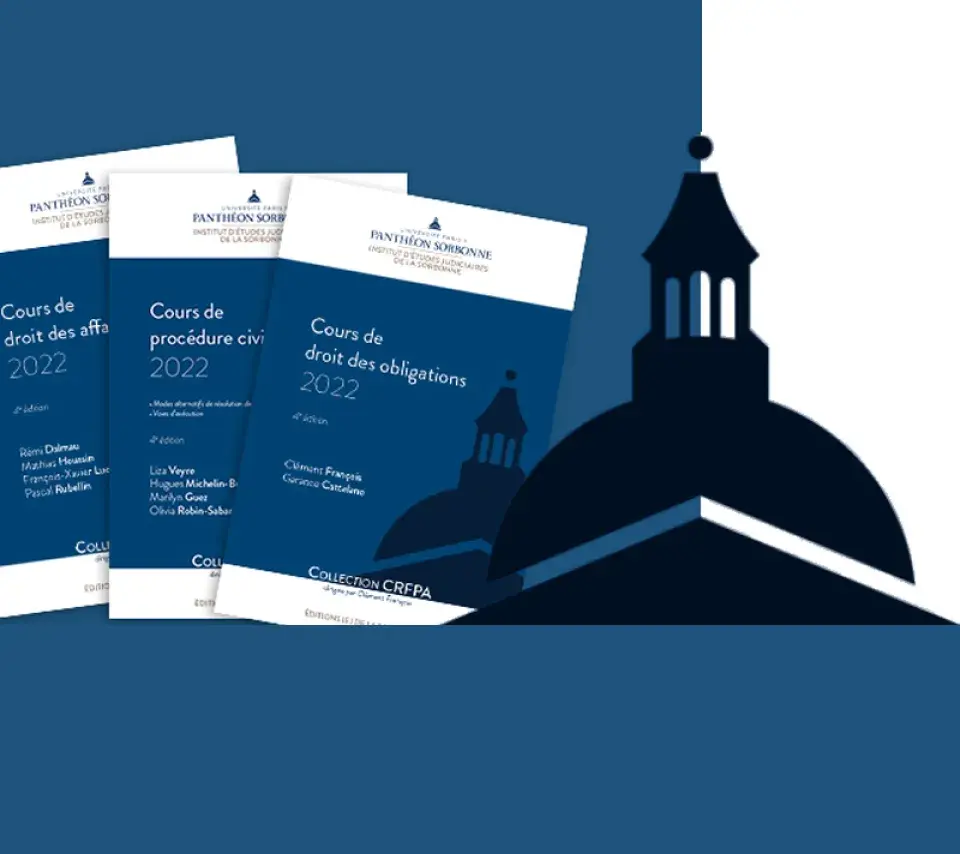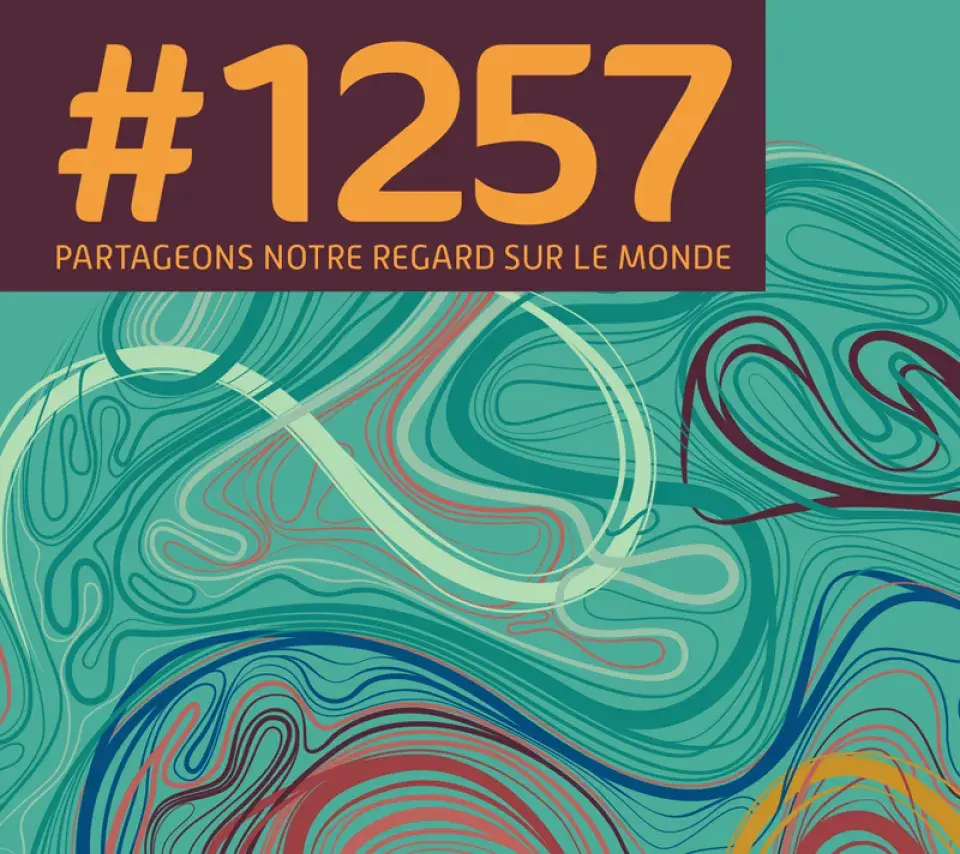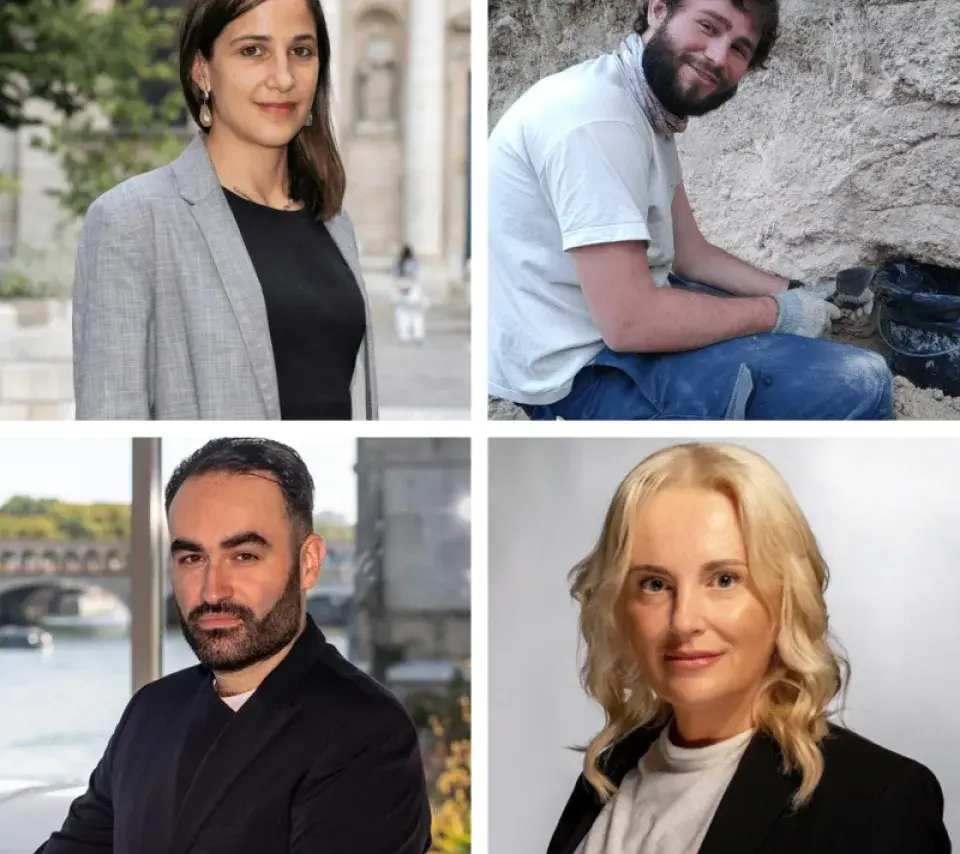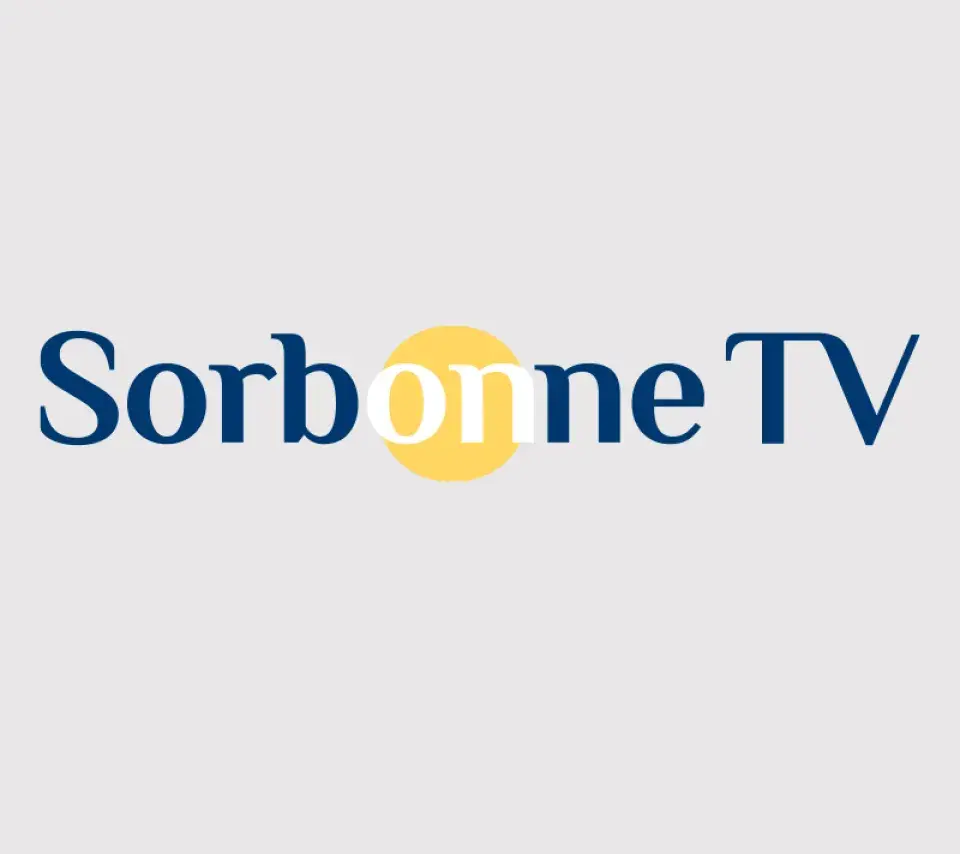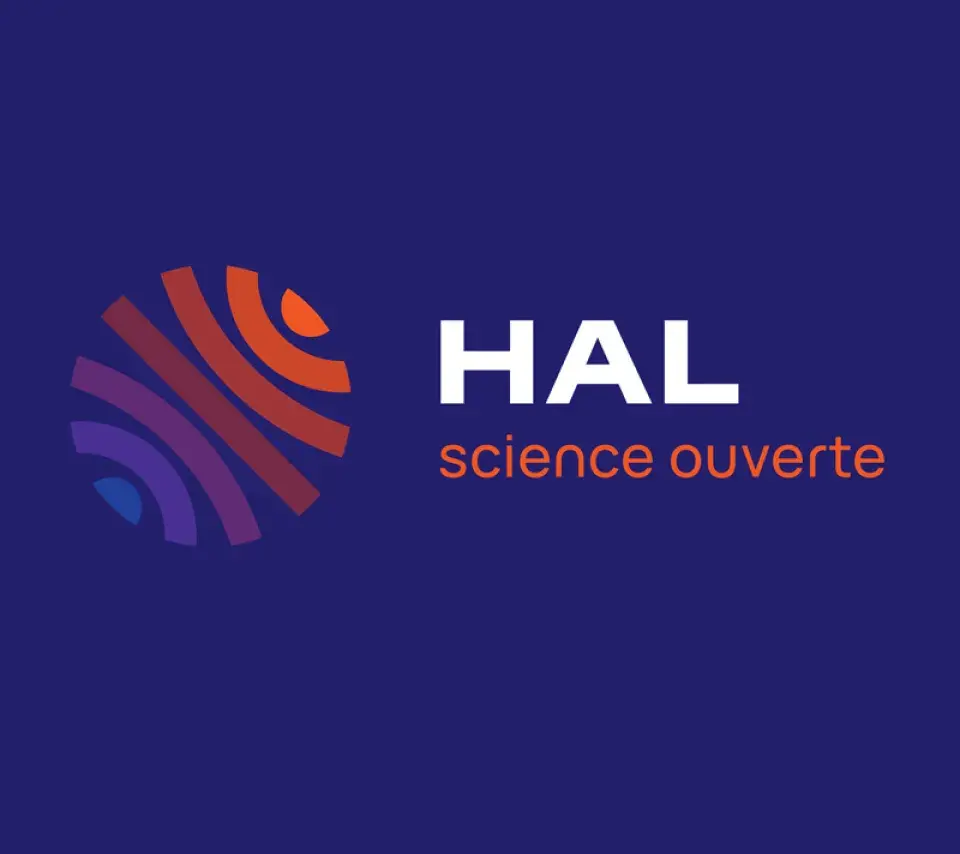Research at Université Paris 1 Panthéon-Sorbonne
Research policy
The research policy of Université Paris 1 Panthéon-Sorbonne is led by a network of research units that are real incubators of performance and innovation. It thus follows the university’s tradition of excellence, inherited from its prestigious history, while renewing permanently its research themes and methodologies. The university’s teachers and teacher-researchers are members of 37 research units, 25 of which are jointly-supervised with the French National Centre for Scientific Research (CNRS) and/or the French National Institute for Sustainable Development (IRD).
The research policy of the university is defined by its Research Commission, based on proposals by the presidential team, in particular the two vice-presidents in charge of research. This policy aims to support and promote research conducted in the university’s own research units, and in joint units, on the themes which are defined by each unit’s council.
To support the university’s general policy which allows research work with partners, inside and outside academia, and throughout the world, the university directs specific funding for:
- International projects (promoting researchers’ mobility, as well as publication in leading international scientific journals).
- Projects working on and with the digitisation of data, the digital visualisation of their analyses and the dissemination of results.
- Projects with an interdisciplinary or even transdisciplinary perspective, capable of responding to societal challenges and communicating to a non-disciplinary, and even non-academic public.
The university’s partnership policy
The research conducted at Paris 1 Panthéon-Sorbonne is enriched by numerous collaborations with institutional partners from academia, as well as with certain national research organisations (NROs) or other academic institutions, and with partners outside academia.
The university draws on its research units, including their national and international partnerships, while focusing on its institutional partnerships with: the partner research institutions and organisations of the Campus Condorcet, of the Sorbonne Alliance, of Una Europa.
The university’s teachers and researchers develop numerous socio-economic partnerships through partnership chairs, business conventions for training through research (so-called Cifre PhDs) and patent filing.
International policy
The university’s research units and doctoral schools promote assignments abroad, invitations to foreign researchers and the development of international projects. For the doctoral schools, this mainly involves promoting joint-supervision and the international composition of PhD juries.
The university also follows the European Higher Education Area (EHEA) framework, with the HRS4R label, its participation in the CoARA (Coalition for Advancing Research Assessment) and through its research programmes. The university is also a partner in the European University Una Europa, a major international project bringing together 11 partners, which develop thematic research and a joint PhD in the field of Cultural Heritage.
Finally, the university has partnerships with international establishments, implemented within the framework of international research conventions, and it organises international exchanges, such as in in New York as part of the Alliance Program.
Human resources policy
The research policy of Université Paris 1 Panthéon-Sorbonne cannot be carried out without the inclusion of researchers in its design – from the youngest to the most experienced. From this point of view, the university adheres to the European Charter for Researchers and has obtained the European Human Resource Strategy for Researchers – HRS4R – label, which aims to guarantee the attractiveness of research careers and improve the recruitment and working conditions of researchers throughout Europe. By obtaining this label in 2021, the university has confirmed its position at the European level.
Research areas
Drawing on the diversity of its research, Paris 1 Panthéon-Sorbonne has also put forward four areas of research to assert its scientific identity, in addition to the five research themes of Una Europa.
These strategic areas combine purely disciplinary research and multidisciplinary consortiums. They also integrate research subjects addressed in a transdisciplinary way. With these four areas, Université Paris 1 Panthéon-Sorbonne seeks to favour collaborations allowing everyone, in and outside academia, to understand better the diversity and complexity of contemporary social realities.
The four major strategic research areas of the university
Realities, objects and models
This area brings together research that questions the status of objects and material culture. It explores the real, including its fictional and virtual dimensions. The area also brings together research on the standards, models and procedures that establish such processes and the effects which these standards and models produce. The area is oriented towards the study of techniques – writings including algorithms, 2D and 3D images – and can integrate experimental forms of action research.
Justice and injustices
This area gathers research on the different forms of justice created by ancient and contemporary societies, and in different spaces. It explores the question of inequalities and their perceptions, as well as the social, economic and cultural mechanisms that produce them. It is oriented towards the production of data and analysis, without neglecting a possible examination of the ethics of research in view of teaching.
Decision-making, organisations and administration
This research area brings together work that explores different models of governance and social organisation – in the past, present and in different regions of the world – as well as their legal, economic and cultural foundations. It is oriented towards the study of decision-making behaviours, and is conceived in particular as a resource to help decision-making public policies.
Time, uncertainties and crises
This area brings together research focusing on moments of rupture: revolutions but also metamorphoses and changes of all kinds. The dynamics of their transformations are captured by the variety of individual identifications (gender, age, social class, origin, etc.), and collective ones (religious communities, political parties, trade unions, associations, etc.). This research area is oriented towards putting current events into the context of the political, social and environmental crises that we are experiencing today.
The historical structure of disciplines
The research conducted at Université Paris 1 Panthéon-Sorbonne is based on the rich and dense teaching of disciplines. These are traditionally grouped into three main families:
- law and political science ;
- economics, management and applied mathematics ;
- and the social sciences and humanities: these include archaeology, visual arts, history, art history, geography and philosophy.
An interdisciplinary gender research area of the Sorbonne
Initiated in 2008-09 by a multidisciplinary research seminar, the interdisciplinary gender axis of the Sorbonne (AGIS) organised doctoral days and internal research seminars at Université Paris 1 Panthéon-Sorbonne. The AGIS then led the Condorcet Gender Workshop (2012-2015) before becoming a winning “Hesam Synergy project” in March 2013 for its project on “Transmission and dissemination of knowledge on gender” (led by the EHESS partner). One aspect of this project was to set up a further education and training programme. The creation of a gender certificate was voted by the university authorities in July 2014, before being replaced in 2019 by a new degree: the multidisciplinary master’s degree in Gender Studies.
Research structures
Université Paris 1 Panthéon-Sorbonne has 37 research units: 12 units are fully part of the university (UR), and 25 mixed or joint units (UMR), which are jointly-supervised with a national research organisation (mainly the CNRS and/or IRD), and often with another university institution (AgroParisTech, Aix-Marseille Université, Collège de France, École des Ponts ParisTech, EHESS, EPHE-PSL, ENS-PSL, ENS-Saclay, Sorbonne-Université, Université d’Évry, Université Paris-Cité, Université Paris-Nanterre, Université Paris Est Créteil, Université Paris 8 Vincennes-Saint-Denis, and sometimes INRAP).
In addition, the university or its research units are members of several collaborative structures, either by discipline or transdisciplinary.
Finally, Université Paris 1 Panthéon-Sorbonne supports the development of research infrastructures that meet the needs of researchers: libraries, technical platforms, archives and data warehouses.

Research structures of the university
- Research units
- Collaborative structures
- Research infrastructures
Cross-cutting projects
Research is first structured by disciplines, or families of disciplines. The latter are the source of a great scientific richness, linked to the accumulation of knowledge and the refinement of methods. Nevertheless, the university also encourages the setting up of projects that will structure research according to another approach, when an issue needs to addressed with the help of several disciplines (multidisciplinary projects) or the implementation of an overall approach from the outset (transdisciplinary projects).
-
Transdisciplinary initiatives
Transdisciplinary research initiatives are developed within research structures (research units or collaborative structures). They bring together ongoing projects funded by external partners (for example, the Ile-de-France Region, the Paris Rectorate, France’s National Research Agency, the European Research Council) or through the university’s Sorb’Rising funding programme. They are sometimes strictly transdisciplinary (a subject of study analysed by a new methodology implemented by different disciplines). They may be interdisciplinary (each discipline bringing its methodology to converge in the analysis of a common subject). These two forms of multidisciplinary work always aim to make the best use of disciplinary knowledge, and often result in significant scientific advances in the disciplines involved.
-
Sorb’Rising
The Sorb’Rising project is funded through France’s 4th programme of future investments (France 2030), and aims to strengthen the identity of Paris 1 Panthéon-Sorbonne as a world-class institution in the social sciences and humanities. It is structured around four areas of activity and runs for eight years (2022-2030). This is a transformative project for the university and gives a place of choice to research.
Sorb’Rising aims to increase the attractiveness of the social sciences and humanities by supporting transdisciplinary research that responds to the challenges raised by the major societal issues of today. Sorb’Rising thus works to promote research that brings an innovative perspective to the major challenges of our time; whether political, ecological, socio-economic, demographic, technological, etc.
This support is based on various actions that will be progressively implemented throughout the programme:
- the promotion of transdisciplinary research initiatives carried out by university teachers ;
- financial support for these emerging or already-existing initiatives, through various waves of Sorb’Rising calls for projects ;
- the establishment of a digital centre of excellence whose aim will be to encourage the contribution of social sciences and humanities to the analysis of digital uses and to stimulate the use of digital instruments in teaching and research activities.
-
Una Europa
Una Europa is an alliance of European universities in which Université Paris 1 Panthéon-Sorbonne and 10 other European universities have decided to cooperate in education, training and research.
To strengthen its research activities, the Una Europa Alliance relies on the Una.Resin project, selected by the European Commission in 2021, and led by the University of Edinburgh. The aim of this project is to build a common ecosystem of research and innovation for the members of Una Europa, by developing common strategies and practices in key areas such as research infrastructures, human capital, the involvement of citizens and the non-academic sector, etc.
Furthermore, for each of the five research themes of Una Europa, research workshops or open seminars are organised to allow exchanges between academics and researchers of the Alliance. Specific seed funding supports collaborative research initiatives between partners.
-
The Campus Condorcet
Together with 10 other institutions, Université Paris 1 Panthéon-Sorbonne is one of the founding members of Campus Condorcet, an international campus of 7½ hectares located in Aubervilliers (just to the north-east of central Paris). The Campus’s aim is to meet the pedagogical, scientific and digital challenges of the 21st century in the field of social sciences and humanities.
The Cité of social sciences and humanities
The project aims to provide the social sciences and humanities with an infrastructure and training for research. This includes providing all the facilities necessary for the success of students and researchers. Campus Condorcet brings together 11 member organisations (including université Paris 1 Panthéon-Sorbonne) which have already had close scientific and pedagogical relations for a long time.
Nicknamed the “French Harvard”, The Cité aims to become a leading international hub for research in social sciences and humanities. This huge complex exists as a university district in the heart of the city-suburb of Aubervilliers and brings a new dynamic to the area by participating in its urban development.
From a scientific point of view, the Campus promotes exchanges between different communities, stimulating meetings between disciplines and researchers. It also facilitates access to knowledge thanks to the Humathèque Condorcet which brings together the holdings of 50 libraries and develops the attractiveness and influence of French research on an international scale.
Key figures of the Campus Condorcet:
- 100 research units,
- 12,000 students including 4,800 PhD students,
- 4,200 teacher-researchers,
- 900 administrative staff,
- 450 student housing units,
- 5 dining areas,
- 1 million documents, 80% of which are open access.
-
Sorbonne Alliance
The Sorbonne Alliance was initiated in 2018, and became operational at the beginning of 2021 with the signing of a territorial coordination agreement between its three founding institutions : Université Paris 1 Panthéon-Sorbonne, the ESCP Business School and Université Sorbonne Nouvelle. This is a flexible and reactive alliance which allows collaborative work across these institutions, while maintaining total freedom of movement of its members. It seeks to create a large cluster in social sciences and humanities, and to nurture the interdisciplinary synergies to meet challenges where required.
Promotion and dissemination of research
Classrooms are the first place for disseminating research results. The courses provided by the university are constantly enriched by research carried out by the teachers and researchers of université Paris 1 Panthéon-Sorbonne, and by all the researchers who participate in its international research networks.
In addition, the university pursues a proactive policy of promoting and disseminating the results and data of its research via its internet HAL portal and its publishing bodies, including the Éditions de la Sorbonne, the Éditions de l’IRJS (Institut de Recherche Juridique de la Sorbonne), the Editions IEJ de la Sorbonne (Institute of Judicial Studies) and the numerous scientific journals directed, co-directed, edited or hosted by the university’s research units.
The results of research are also promoted by transfer actions in the socio-economic world: partnerships linked to research chairs, specific agreements for decision-making support, or actions jointly-constructed by researchers (in academia or outside) and by social actors.
At the institutional level, the university publishes the revue #1257 (available in English) which aims to make its research accessible to as many people as possible. The aim of this journal is to give readers the chance to discover the state of research at the university, but also to testify to the actions that drive researchers’ daily lives.
Finally, cultural mediation mechanisms and dialogues with non-academic partners make it possible to disseminate research results outside university circles.
Open science
Open science is now integrated into all public policies, both national and European, and is fully in line with the orientations of Université Paris 1 Panthéon-Sorbonne. The university is committed to the national and European objective of Open Access which consists in opening up scientific knowledge through findability, accessibility, interoperability and reusability (the FAIR principles), all within an adapted scientific, legal, ethical and technical framework.
A website specifically dedicated to open science and a local support network made up of open science contact persons provide the university’s researchers and research units with the required resources and support. The university’s objectives on open science are:
- to raise awareness and support teacher-researchers and PhD students through diversified and adapted training;
- to encourage research to be posted on specific platforms and in particular on the HAL-Paris1 Panthéon-Sorbonne internet platform;
- to encourage the creation of researcher identifiers and HAL CVs;
- to support the choice of open access for the university’s publishing activities
PhDs
Université Paris 1 Panthéon-Sorbonne organises PhD training in 10 doctoral schools for: archaeology, history, political science, plastic arts and art sciences, philosophy, art history, and the Sorbonne Law School doctoral school. These prepare students for their PhDs, in their respective disciplines, and which are only awarded by Paris 1 Panthéon-Sorbonne. Three further doctoral schools are common to several co-accredited institutions. This is the case of the Paris doctoral school of geography (shared with the Sorbonne Université), the Panthéon-Sorbonne doctoral school of economics (shared with PSL, EHESS and ENPC), and the Panthéon-Sorbonne doctoral school of management (shared with the ESCP Business School). The university is also co-accredited to award PhDs prepared within the Paris Centre doctoral school of mathematical sciences. The university has a college of doctoral schools whose mission is to implement the PhD policy of the institution, federating certain skills and ensuring the administration of qualification campaigns permitting teacher-researchers to supervise research (HDR).
2,197 PhD students were enrolled at the university in 2021/2022, including 344 first enrolments. 233 PhDs were defended in 2021. Each year, the university offers several doctoral contracts in addition to the 90 contracts awarded through competition by the doctoral schools and those proposed by the research structures and other institutions and organisations. In total, 213 PhDs were funded in 2021/2022.
The university has a proactive policy of providing access to PhD training to professionals (senior civil servants, senior officers, persons in positions of responsibility). To date, several agreements have been signed with partners such as the Institut Français de la Mode, the École d’Architecture de la Villette, the École de Guerre, the Institut National du Patrimoine and the École du Louvre.
Being open to the world, Paris 1 Panthéon-Sorbonne promotes and encourages mobility, the international joint-supervision of PhDs, as well as the international composition of PhD juries. The university’s commitment to the European Higher Education Area is also reflected in its PhD policy. As a founding member of the Una Europa Alliance, the university is piloting the interdisciplinary programme “Una Europa Cultural Heritage” (Una Her Doc), which allows students to obtain joint degrees from two co-supervising universities in this alliance.
